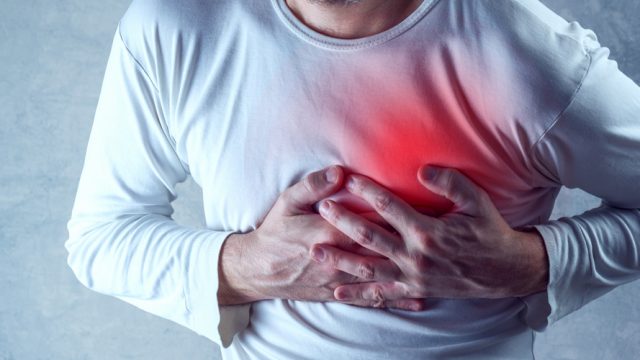N is for nutrition, the fuel of life

Imagine that you have just come into possession of the sports car of your dreams! Money was no object in its design and manufacture. Even the smallest detail had been tended to with meticulous care. On the outside the doors and fenders are aligned perfectly. The finish sparkles with perfection. You pop the hood and are greeted with the sight of an engine that is made with the craftsmanship of a fine Swiss watch. When you open the car door you savor the smell of soft, subtle leather. As you sink into the wonderfully padded seats and turn the ignition key to start the engine, you hear the purr from the powerful engine. The moment has come for you to take this—your car—for a drive!
After a few hours of pure enjoyment, you notice that the fuel gauge is showing close to empty, so you pull into the first gas station you find. Looking in the owner’s manual you see that the manufacturer has recommended only premium fuel for the high-compression engine. You decide, however, that any grade fuel will do and fill it with “regular” instead. After all, you think, they look and smell the same. Later, when you check the engine oil, you top it up with a little water!
With that kind of care, how long do you think your dream car will last?
Our bodies are far more beautiful and complex than the finest machine ever made by humans! Like a fine sports car, our bodies need fuel to power our lives, and that fuel comes from the food we eat. A balanced diet chosen from the best foods will provide the essential nutrients needed for growth, maintenance, and energy. If we choose low-quality foods or do not eat enough of even the best foods, the body machinery will suffer. Too much food may result in obesity, and excessive amounts of some nutrients may cause toxicity.
The Right Body Fuel
In each meal one can enjoy the cornucopia of nutrient-dense, whole-grain breads and cereals, along with rich, colorful fruits and vegetables containing abundant amounts of vitamins, minerals, dietary fibers, and phytochemicals. Enjoy essential fats in crunchy nuts and seeds, bone-building calcium from low-fat milk or a fortified soymilk, and healthful proteins from satisfying legumes (beans, peas, and lentils) seasoned delicately with herbs and small amounts of salt, sugar, and vegetable oil as needed. These energizing, body-building foods consumed daily in appropriate quantities can reduce the risk of cancer, coronary heart disease, hypertension, intestinal disease, obesity, and osteoporosis.
Understanding Nutrition
Our bodies get the nutrients we need from the food we eat. The nutrients our bodies need include:
Carbohydrates: The largest portion of our diet should come from these in as unrefined a form as possible. Whole grains, legumes, fruits, and vegetables are rich in these.
Proteins: Every cell in the body contains proteins. Tissue repair and growth require them. While almost all foods contain some protein, particularly good sources are milk, eggs, and other animal products. Legumes are excellent plant sources.
Fats: These are a concentrated source of energy. We often get too much fat in our diet because we like the flavor it imparts to foods (i.e., boiled or baked potatoes versus French fries).
Vitamins
- Fat soluble
- Water soluble
Minerals
Trace minerals
Antioxidants and phytochemicals: These substances protect the body from disease and some of the effects of aging. They are found primarily in whole grains, fruits, vegetables, and nuts.
Essential Food Groups
There are five essential food groups:
- Cereals and grains
- Fruits and vegetables
- Legumes, nuts, and seeds
- Dairy and eggs, or fortified equivalents
- Fats, oils, sweets, and salt (these foods are required only in small amounts
One of the most important keys to eating a balanced plant-based diet is selecting a variety of foods whose color, texture, and flavor add interest to the diet. These foods are best when consumed as they come from nature: not refined, not pulled apart, not fractionated. Whole foods should be the goal.
“Use plant foods as the foundation of your meals. . . . Eating a variety of grains (especially whole-grains), fruits and vegetables is the basis of healthful eating.”1 This recommendation has been simplified in the 2010 “Dietary Guidelines for Americans” to “make half your plate fruits and vegetables.”2
Spiritual Food
A healthful diet can increase lifespan and the quality of life. God loves us and desires that we lead healthy, productive, and happy lives. We can celebrate His goodness as we appropriately enjoy the many products of the earth that He has given us.
This article is a condensed version of a chapter taken from the GC Health Ministries book CELEBRATIONS(healthministries.com).
_____________________
Read more in our CELEBRATIONS series:
- Choices: https://www.adventistworld.org/lets-celebrate-choices/
- Exercise: https://www.adventistworld.org/lets-celebrate-exercise/
- Liquids: https://www.adventistworld.org/lets-celebrate-liquids/
- Environment: https://www.adventistworld.org/lets-celebrate-the-environment/
- Belief: https://www.adventistworld.org/lets-celebrate-belief/
- Rest: https://www.adventistworld.org/rest/
- Air: https://www.adventistworld.org/lets-celebrate-air/
- Temperance: https://www.adventistworld.org/lets-celebrate-temperance/
- Integrity: https://www.adventistworld.org/lets-celebrate-integrity/
- Optimism: https://www.adventistworld.org/the-optimism-of-hope/
1 USDA “Dietary Guidelines for Americans, 2000”; www.health.gov/dietaryguidelines/dgac/. Accessed June 19, 2012.
2 USDA “Dietary Guidelines for Americans, 2010”; www.choosemyplate.gov/food-groups/fruits.html. Accessed online June 19, 2012.








